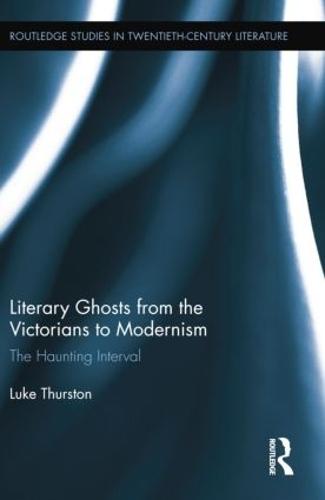Overview
This book resituates the ghost story as a matter of literary hospitality and as part of a vital prehistory of modernism, seeing it not as a quaint neo-gothic ornament, but as a powerful literary response to the technological and psychological disturbances that marked the end of the Victorian era. Linking little-studied authors like M. R. James and May Sinclair to such canonical figures as Dickens, Henry James, Woolf, and Joyce, Thurston argues that the literary ghost should be seen as no mere relic of gothic style but as a portal of discovery, an opening onto the central modernist problem of how to write ‘life itself.’ Ghost stories are split between an ironic, often parodic reference to Gothic style and an evocation of ‘life itself,’ an implicit repudiation of all literary style. Reading the ghost story as both a guest and a host story, this book traces the ghost as a disruptive figure in the ‘hospitable’ space of narrative from Maturin, Poe and Dickens to the fin de siècle, and then on into the twentieth century.
Full Product Details
Author: Luke Thurston (Aberystwyth University, UK)
Publisher: Taylor & Francis Ltd
Imprint: Routledge
Dimensions:
Width: 15.20cm
, Height: 1.50cm
, Length: 22.90cm
Weight: 0.294kg
ISBN: 9781138016217
ISBN 10: 1138016217
Pages: 202
Publication Date: 14 February 2014
Audience:
College/higher education
,
Tertiary & Higher Education
,
Undergraduate
Format: Paperback
Publisher's Status: Active
Availability: In Print

This item will be ordered in for you from one of our suppliers. Upon receipt, we will promptly dispatch it out to you. For in store availability, please contact us.
Reviews
A terrific book, tightly-argued, highly-disciplined, constantly making interconnections of a convincing kind between the examples; never obscure or wandering from the point, often witty and sharp in observation and deduction - a brilliant account of what goes on and what's at stake when the ghost gets into the machine of narrative. - Professor Peter Barry, author of Beginning Theory Literary Ghosts is a courageous book, unafraid to make room for the voices of capital-T Theory without allowing them to shout down the voices of fiction... If the ghostly voice is worth discussing, Thurston implies, then it is worth listening to, echoing (as it echoes us), and making it our own. Given such a compelling account, I agree with him. - Jennifer Bann, University of Glasgow, Review 19 Thurston is ambitious in his theoretical scope... [his] book is a radical guest within the field of established Gothic readings of haunting. As hosts, it is our duty to welcome a study that advances our knowledge of the field significantly. - Matt Foley, The Gothic Imagination
Author Information
Luke Thurston is Senior Lecturer in Modern Literature at Aberystwyth University. He is the author of James Joyce and the Problem of Psychoanalysis (2004), the editor of Re-inventing the Symptom: Essays on the Final Lacan (2002), and the translator of works by Jean Laplanche and André Green.




